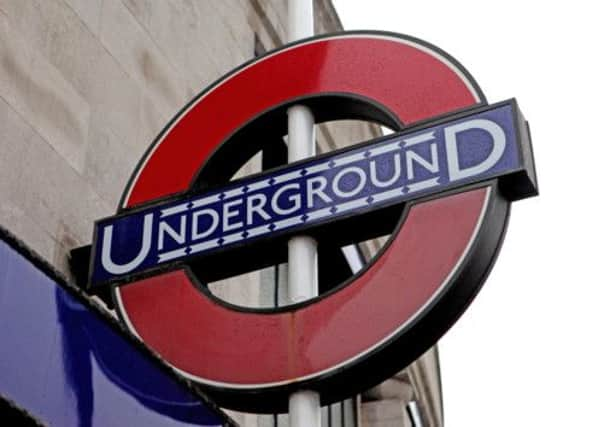Andrew Wilson: Need to let go of Nurse London’s hand


It is about the boy who ran away from his nurse and was eaten by a lion. The moral being, of course, that if you run away from nurse, especially in a crowd, the risks of what can ensue are really quite dramatic and extreme. The poem has five short verses and no difficult words.
It begins with Jim’s very happy life: “There was a Boy whose name was Jim; His Friends were very good to him. They gave him Tea, and Cakes, and Jam, And slices of delicious Ham”.
Advertisement
Hide AdAdvertisement
Hide Ad“So far so good”, you might say. “Lucky Jim”, you may deduce. And I guess you would be right. But Jim, as is the way of children and those of independent intent, was not satisfied with satisfaction. He slipped the nurse’s hand and “He hadn’t gone a yard when – Bang! With open Jaws, a lion sprang,”
It is, I am sure you will concur, the way of the world. No good ever comes of it. And by “it” I mean of course a mind, intent or purpose of your own.
And so it is that Belloc concludes his tale in the shape of the wise shadow of the patriarch (who else?) as he enters at the poem’s end: “His Father, who was self-controlled, Bade all the children round attend. To James’s miserable end, And always keep a-hold of Nurse. For fear of finding something worse”.
What to do when all around us a storm rages? These are epic days of great change in the tides of the world economy and politics. So much of what is actually going on is so difficult to discern and simplify. Better surely to stand still in the storm, hanging onto certainty than face the risk of consumption by a passing lion, of which there are so many? Possibly, if where we were standing was safe, secure and certain. Look around. It isn’t.
What we do know is that, for all the hopeful protestations of light at the end of the tunnel, discerning between green shoots and weeds in the UK economy is not a simple judgment. The Bank of England’s director for markets, Paul Fisher, said on Friday that there had been nothing to compare with the poor performance of the economy since modern quarterly growth data was first produced in 1955.
“It is as if the different groups within our society – households, businesses, banks and the government – have all decided that their future financial positions, on average, will be worse than they thought before the crisis”.
Earlier the International Monetary Fund (IMF) had published its own analysis of the UK economy. It was long on description and short on prescription. And how does this all feel for most people apart from worrying? Well, around a quarter of all UK households could not survive the month without going bust if their main income failed. Meanwhile, at the other end of the spectrum the top third have healthy savings, have ridden the housing boom and stand content. Everyone else is just frantically scrimping, saving and battling to make ends meet and their hopes possible.
The ill-divided nature of Britain’s boom and bust is material to both the welfare of most and the economic prospects of all. One of the best economic reports of the post-bust era was last year’s examination of the route to growth in England by Michael Heseltine. His essential analysis was that England’s economy had for too long flown on the one engine of the success of London while the great cities and regions had atrophied, stuttered or failed. The accuracy of his analysis cannot be doubted. The gap between the richest part of the UK (west London) and its poorest northern English region remains the largest of any country in the European Union 25. (Scotland, incidentally performs the best of the rest of the UK regions and nations outside the South-east).
Advertisement
Hide AdAdvertisement
Hide AdIt is easy to look too hard at the macro-economic numbers for the story of the whole. In fact, within the detail of the performance of the economy more locally lies, surely, a message of where our policy eye must turn. If we depend on one engine what do we do when that engine stalls? And most aren’t seeing the benefits of its performance in good times so what is the point in any event?
The post-war centralised and centralising model for the UK economy has failed for too many of its citizens for too long. The one engine of London, however turbo charged, cannot be depended upon to lift the rest in such epic times of turmoil. It’s not fair on London either.
“Hanging on to nurse for fear of something worse” is not a policy prescription for the regions of England any more than it is for the country of Scotland, which at least has the choice to take more matters into its own hands. Whether its population have the wherewithal to get the true message of Belloc’s tale remains to be seen. But the evidence that they should is all around.
Twitter: @AndrewWilsonAJW